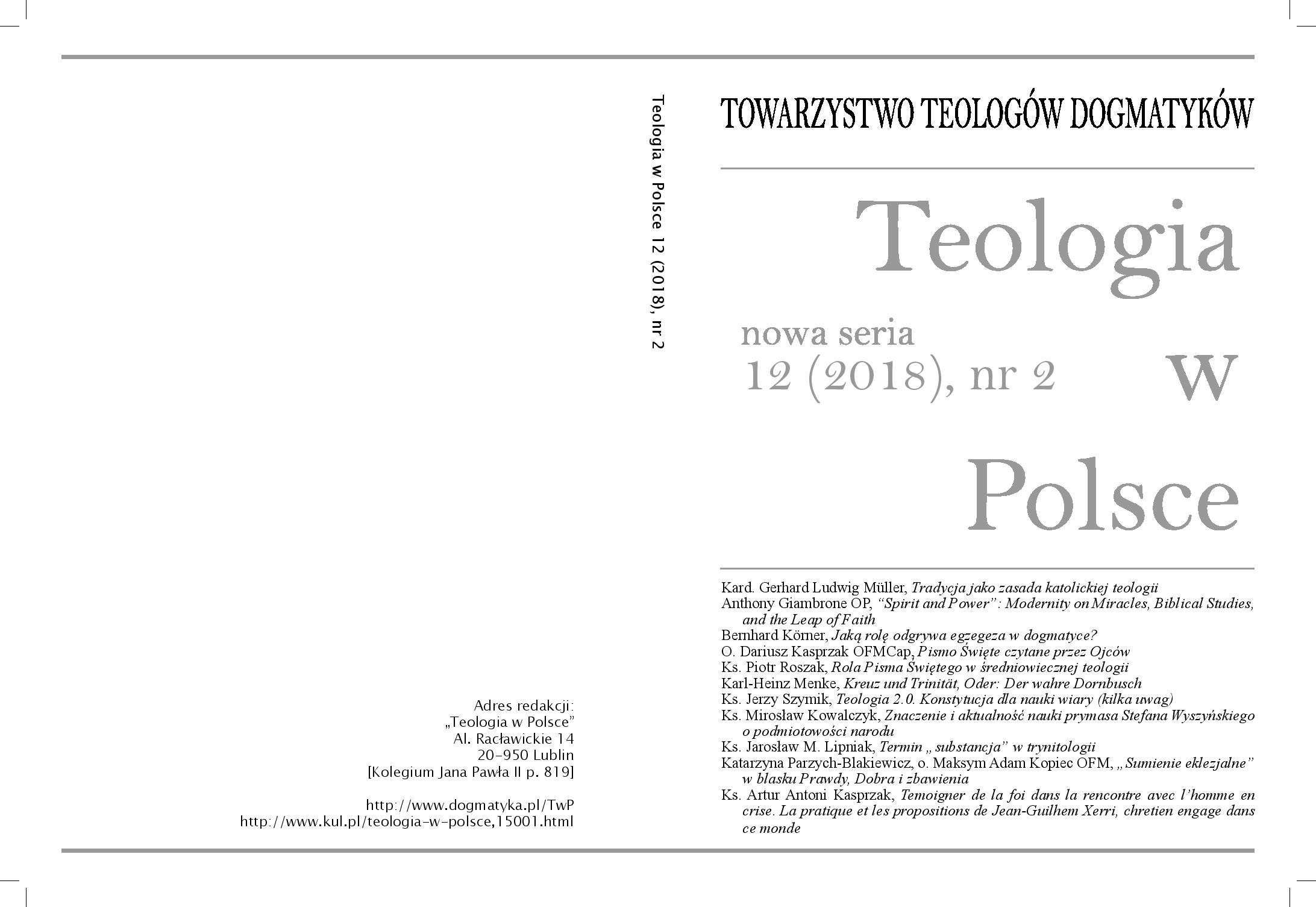Pismo święte czytane przez Ojców
The Christian Fathers on the Holy Scripture
Author(s): Dariusz KasprzakSubject(s): Christian Theology and Religion
Published by: Katolicki Uniwersytet Lubelski Jana Pawła II - Wydział Teologii
Keywords: the patristic Bible; canon; revelation; function and meaning of the Holy Scriptures
Summary/Abstract: The unification of the books of the Bible and the definition of the standard Constantine edition of the Holy Scripture set about 425 was historically coincident with the imperial policy of the introducing of religious homogeneity in the Roman Empire at the beginning of the fourth century. Moreover, due to the cultural continuity within the Roman Empire until the 5th century, it was possible the translation of “word for word”. The German-Iranian raids in the 5th century resulted in the disintegration of the ancient cultural community, and caused the necessity of the translations of “meaning in meaning”. The highest form of God’s revelation for the patristic authors was the incarnation of God. The Bible, as the revealed word of God, was understood as a privileged, free God’s phenomenon, through which God reveals the truth about himself and communicates with man. Consequently the Church Fathers interpreted the divine inspiration as the gift of God which was given to a biblical author. In this way an inspired writer was able to convey the divine revelation drown from the Holy Scriptures to a community of the faithful, which received as the word of God himself. In the opinion of the Church Fathers, the Christian theology was based on the contemplation of the Bible, which constituted the norm of the Christian faith. To the Patristic writers Jesus was a hermeneutic key to the Holy Scripture and it was him who leads the faithful to the cognition of the divine mystery and the human dignity. In their exegesis and theology the Christian Fathers showed us that the Person of Jesus, who ultimately revealed the Father to us should not be distinguished from testimony of the Christian kerygma and the Holy Scriptures. This affirmative attitude towards the Bible contributed to the formation of the biblical canon in the 7th century and also shaped the Trinitarian, spiritual and liturgical tradition of the Church. The Biblical interpretation of the church Fathers can be regarded as a more complete meaning of the NT, which expresses the sense intended by God, the first author of the Scripture in the dogmatic tradition of the Church, and which sense was not fully known to the human author of the Scriptures (e.g. the concept of the Holy Trinity, the intra-trinitarian relations and the doctrine of the original sin). Thus understood the reading of Scripture was for the patristic writers both the source of their faith and their theology.
Journal: Teologia w Polsce
- Issue Year: 12/2018
- Issue No: 2
- Page Range: 49-69
- Page Count: 21
- Language: Polish

